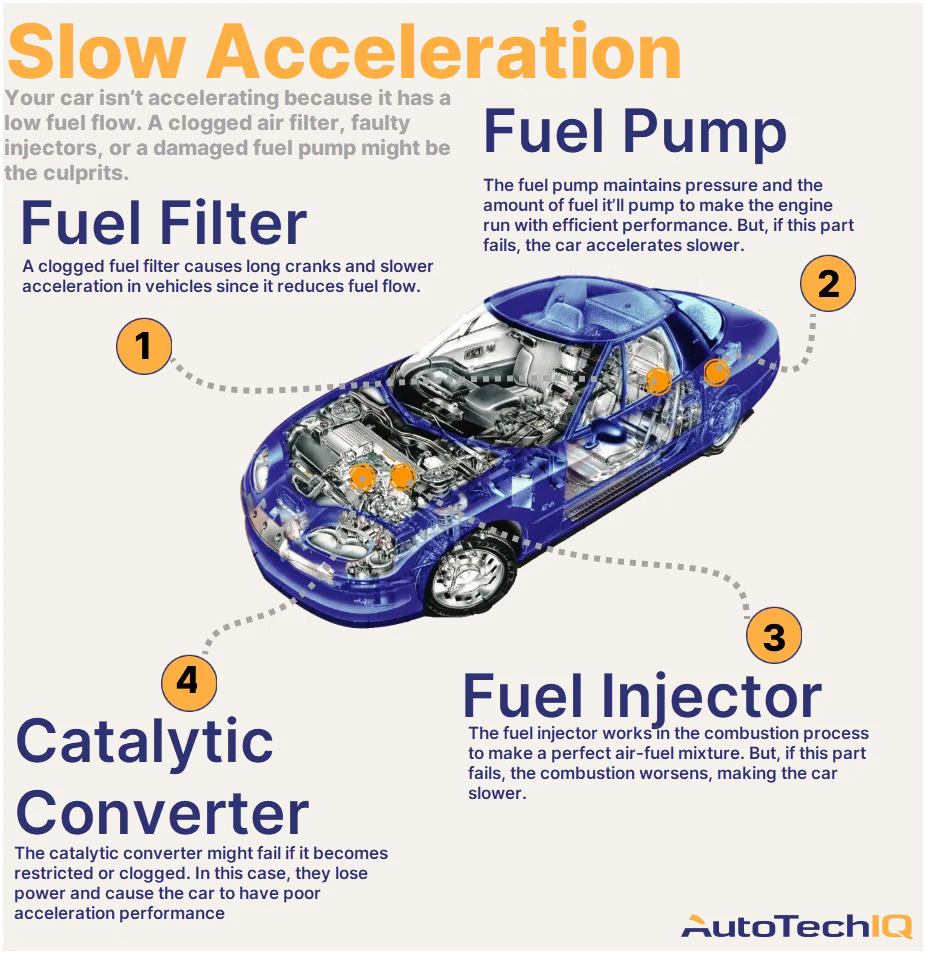Acceleration is a crucial aspect of vehicle performance that directly affects the driving experience․ Whether you are trying to merge onto a freeway or simply want to enjoy a spirited drive, smooth and responsive acceleration is key․ However, various issues can hinder a car’s ability to accelerate effectively․ In this article, we will explore the common acceleration problems, their potential causes, and what you can do to address them․
Common Acceleration Issues
- Delayed Acceleration
- Stuttering or Hesitation
- Loss of Power
- Unusual Noises
- Check Engine Light
1․ Delayed Acceleration
One of the most frustrating issues drivers face is delayed acceleration․ This can occur when pressing the gas pedal results in a lag before the car begins to speed up․ Potential causes include:
- Transmission problems
- Fuel delivery issues
- Faulty throttle position sensor
If you experience delayed acceleration, it is essential to have your vehicle inspected to identify the underlying cause․
2․ Stuttering or Hesitation
Stuttering or hesitation during acceleration can be alarming, especially at high speeds․ This issue can be caused by:
- Clogged fuel injectors
- Dirty air filters
- Worn spark plugs
Regular maintenance, including changing filters and spark plugs, can help prevent this issue․
3․ Loss of Power
A sudden loss of power when attempting to accelerate can be dangerous․ This can be attributed to several factors:
- Engine problems
- Exhaust system blockages
- Transmission issues
If your vehicle struggles to accelerate, it is crucial to consult with a mechanic as this could indicate serious issues․
4․ Unusual Noises
Hearing unusual noises when accelerating can signal a problem․ These noises may include:
- Grinding or rattling sounds
- Hissing noises
- Knocking sounds
Identifying the source of these noises can help determine whether the issue is related to the engine, transmission, or exhaust system․
5․ Check Engine Light
The check engine light is a warning sign that should never be ignored․ It can illuminate for various reasons, including:
- Oxygen sensor failures
- Mass airflow sensor issues
- Fuel system faults
Having your vehicle diagnosed with an OBD-II scanner can help pinpoint the exact cause and necessary repairs․
Preventive Measures
To avoid acceleration issues, consider the following preventive measures:
- Regular Maintenance: Schedule regular check-ups and maintenance to keep your vehicle in optimal condition․
- Change Filters: Replace air and fuel filters periodically to ensure proper airflow and fuel delivery․
- Check Fluids: Regularly check and replace engine oil, transmission fluid, and coolant to prevent overheating and mechanical failures․
- Inspect Spark Plugs: Replace worn spark plugs to ensure efficient combustion and smooth acceleration․
Understanding the common car acceleration issues and their potential causes can help you maintain your vehicle’s performance and safety․ If you encounter any acceleration-related problems, it is advisable to seek professional assistance promptly․ Regular maintenance and timely repairs can prevent minor issues from escalating into significant problems, ensuring a smooth and enjoyable driving experience․

